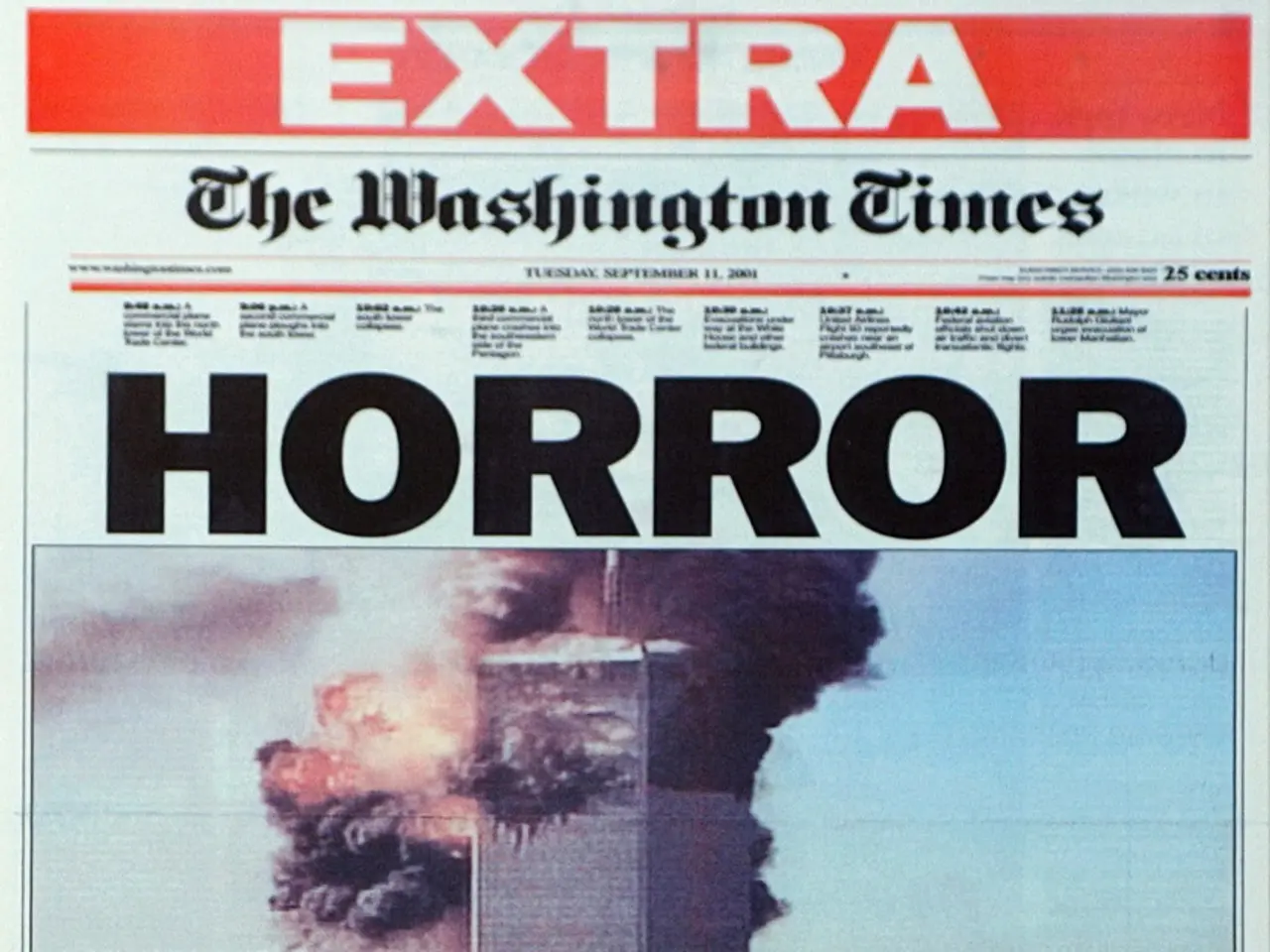U.S. Deems Military Presence in Syria Imperative to Prevent ISIS Resurgence, Assertions by CENTCOM Candidate
The Islamic State (IS) remains a significant threat in Syria, and Navy Vice Adm. Brad Cooper, nominee for the head of U.S. Central Command, asserts that a US military presence is still crucial in managing this danger. For now, the Pentagon plans to slash the US troop count from 2,000 to under 1,000 service members, but Cooper believes maintaining some presence is essential in the ongoing counter-ISIS mission.
The present circumstances in Syria require thoughtful consideration before considering additional troop reductions. Cooper, who is currently the deputy commander of U.S. Central Command, stressed that a military presence is indispensable in fighting IS. He foresees a continued US leadership role in combating IS, even in the future.
Secretive about specific troop numbers in Syria, the Pentagon has been tight-lipped about the current troop count. US forces in Syria have been dispatched to assist the Kurdish-led Syrian Democratic Forces (SDF), a coalition that played a pivotal role in collapsing the IS self-styled caliphate in 2019 and is working tirelessly to prevent IS's resurgence.
In the turbulent landscape of Syria's internal conflict, the US and the SDF have steered clear of Syria's civil war, which resulted in the ousting of former Syrian President Bashar al-Assad and his subsequent exile in Russia. Syria's current president is Ahmed al-Sharaa, who seized power last December and promised to establish a tolerant, multi-ethnic state.
After prolonged deliberation and diplomatic maneuvering, the US has thrown its support behind the new Syrian leader, President Trump lifted sanctions on the country in response to encouragement from Saudi Arabia during a Middle Eastern visit.
However, Syria still struggles with sectarian violence. A brutal attack in western Syria primarily targeting the Alawite sect, to which Assad belongs, claimed hundreds of lives in March. Concerns are rising that IS might look to exploit these tensions in staging a comeback. On June 22, Syrian authorities blamed the Islamic State group for detonating a church outside Damascus, resulting in 25 fatalities.
"We remain vigilant against the IS threat," Cooper stated when queried about the church bombing by Senator Joni Ernst (R-Iowa). "IS continues to pose a danger, and as I assume office—if confirmed—I will maintain constant vigilance against this threat, which is our top priority."
Despite the precarious situation in the nation, Cooper expressed optimism about al-Sharaa's reign and highlighted him as a valuable partner in the battle against IS. "IS thrives in chaos," Cooper explained. "Should the government of Syria, only seven months into its existence, aid in repressing the IS threat, together with US forces in the region, this stability will yield our own security."
U.S. Ambassador to Turkey Tom Barrack, who currently fulfills the role of the U.S. envoy to Syria, has endeavored to support the new Syrian government. The involvement of al-Sharaa's government in the anti-ISIS campaign could potentially pave the way for further US troop reductions safely in the months and years ahead.
Cooper cautioned that, due to the dynamic nature of the situation, future assessments of required US troops in Syria could differ compared to the present.
- In the context of the ongoing counter-ISIS mission, Navy Vice Adm. Brad Cooper, who is the deputy commander of U.S. Central Command, emphasizes the indispensability of a military presence in Syria.
- The Space Force, while not explicitly mentioned, could potentially play a role in providing surveillance and intelligence support for US operations in Syria, aiding in the fight against IS and maintaining security.
- Defense and security officials in the Pentagon must keep a close eye on crime and justice issues within Syria, such as the recent brutal attack on the Alawite sect and the church bombing in Damascus, as they could provide opportunities for IS to stage a comeback.
- Politics and diplomacy are important factors in determining the role of US troops in Syria. For instance, the US has thrown its support behind the new Syrian leader, President Ahmed al-Sharaa, following prolonged diplomatic maneuvering and encouragement from Middle Eastern allies like Saudi Arabia.
- General news outlets should continue to closely monitor the situation in Syria and report on developments related to the IS threat, military presence, US-Syrian relations, and al-Sharaa's leadership, as these areas are important for the overall defense and security of the US and its allies.




